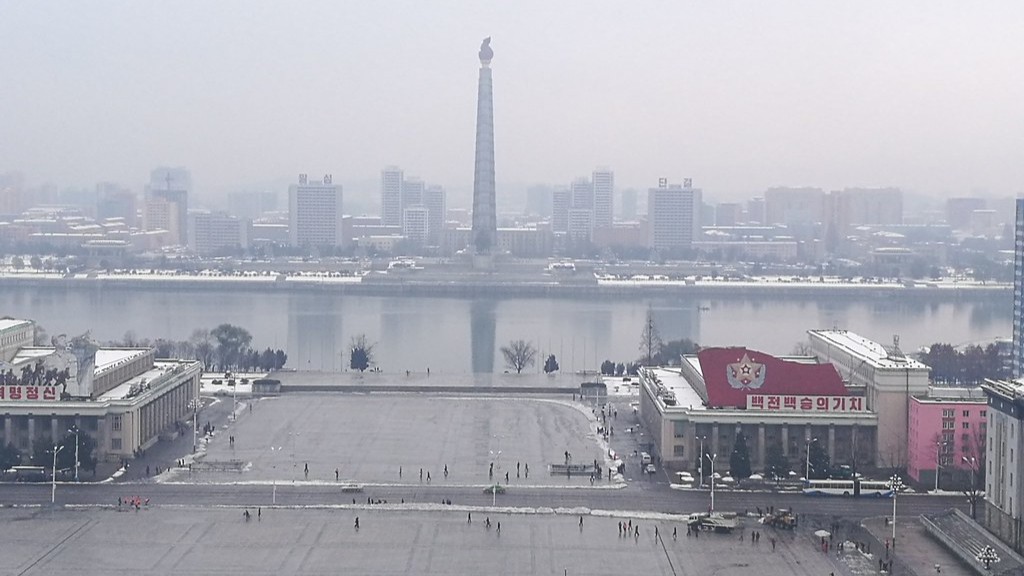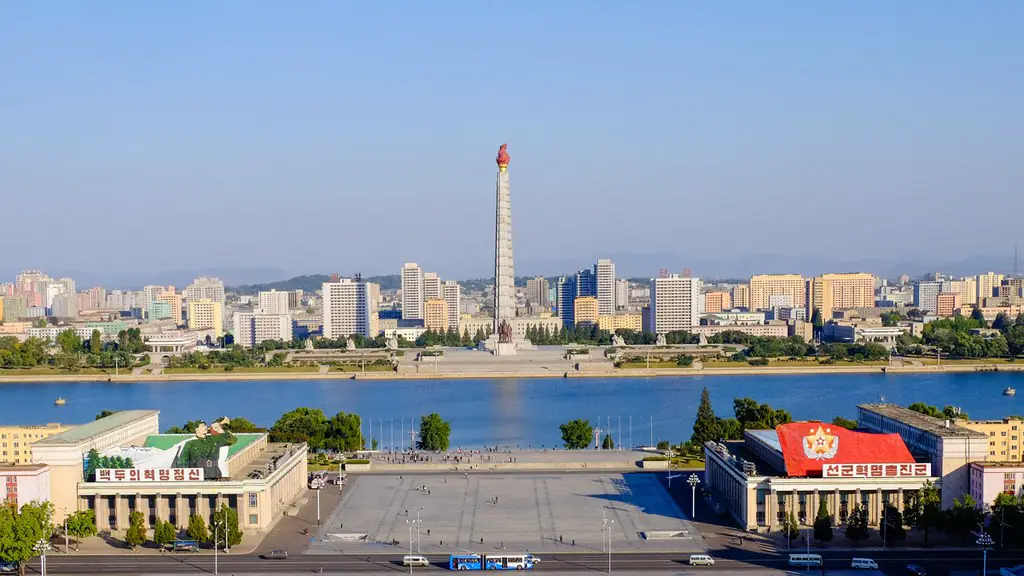Since the ascension of the new leader, Kim Jong-un in North Korea, the country has become increasingly isolated from the rest of the world. North Korea is attempting to develop its nuclear arsenal, creating tensions between the US and North Korea. This has caused the international community to ask if the US will be able to develop a strategy for dealing with the situation. To understand what the US might do about North Korea, it is important to explore the current conditions of the country, the risks and challenges in addressing them, and available options for the US.
North Korea is one of the most impoverished countries in the world, with an economy that relies heavily on trade with neighboring China. It has an aging population and few economic opportunities. The government is a dictatorship, run by Kim Jong-un, and it is believed to have the world’s fourth-largest stockpile of chemical and biological weapons. The country has conducted a number of underground nuclear tests, and has indicated that it has the ability to launch nuclear missiles.
The US faces a number of risks and challenges in addressing North Korea’s nuclear program. The country has moved quickly to develop its nuclear capabilities, making it difficult to contain. The risk of an armed conflict between the US and North Korea is real, and could be devastating. In addition, North Korea has indicated that any efforts to stop its nuclear program will be met with force. Finally, US policy in the region has been influenced by China, which is unwilling to intervene militarily.
Types of US Response to North Korea
There are three potential US responses to North Korea: military action, economic sanctions, and diplomacy. Military action would involve the US or its allies launching an attack on North Korea’s nuclear facilities. This could lead to a full-scale war with North Korea, as the country has indicated that it would take military action in response. Economic sanctions could be imposed on North Korea to limit its ability to buy or sell goods, or to stop certain types of exports. Finally, the US could use diplomacy to resolve the crisis, though it is not clear if this will be successful given North Korea’s unwillingness to engage in talks.
Each of these options carries risks for the US. Military action would be unlikely to completely eliminate North Korea’s nuclear program, and could lead to a major conflict. Economic sanctions may not be effective, as North Korea could find other countries to trade with. Diplomacy has the potential to reduce tensions, but it is uncertain if North Korea would be willing to negotiate.
US Policy Moving Forward
It is likely that the US will ultimately take a combination of military, economic, and diplomatic actions in response to North Korea. The US could launch limited military strikes on key targets in North Korea, while simultaneously imposing economic sanctions to limit the country’s revenue. At the same time, the US could work with other countries, including China, to broker diplomatic talks between North Korea and the international community.
Such an approach would be risky, but could be the best option for the US. In the long run, it is in the US’s interest to ensure that North Korea does not have a full-scale nuclear weapons program. However, the US must also recognize that North Korea is unlikely to give up its nuclear ambitions without a fight. As such, any US policy must be carefully calibrated to prevent an escalation of tensions, and ensure the safety of both the US and North Korea.
International Perspective of US Response to North Korea
The international community is divided on how to respond to North Korea, with many countries advocating for a peaceful resolution to the crisis. China, in particular, has advocated for diplomatic talks and an easing of economic sanctions. Other countries, such as Japan and South Korea, have called for tougher measures to prevent the further development of North Korea’s nuclear weapons program.
The US is in a difficult position in the face of this divisions. It is often seen as the main instigator of military action in the region, and must be careful not to provoke a conflict with North Korea. At the same time, the US must be seen as taking a firm stance against North Korea’s nuclear ambition in order to maintain its credibility in the region and around the world.
The Impact of US Response on North Korea
The US response to North Korea will have a significant impact on the future of the country. If the US takes a strong stance against North Korea’s nuclear program, there is the possibility that North Korea will become even more isolated and impoverished. On the other hand, a softer approach could lead to a productive dialogue between North Korea and the international community, which could eventually lead to economic and political reforms in the country.
The US must also consider the impact that its actions will have on its allies in the region. South Korea and Japan are both deeply concerned about the threat posed by North Korea, and the US must be mindful of their security concerns when crafting its policy. In addition, China has a major stake in the future of North Korea, and the US must take its interests into account when formulating its strategy.
Conclusion
North Korea is a challenging issue for the US, and the best solution is far from clear. The US must balance its desire to hold North Korea accountable for its nuclear ambitions with the need to protect its own security and the security of its allies. It is incumbent upon US policy makers to carefully consider all available options and weigh the risks and benefits of each before taking action.



